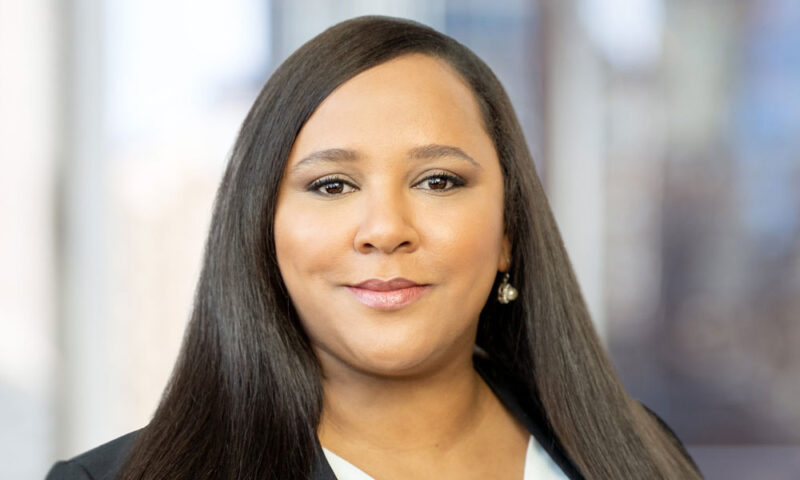
Financial Pro Meryl Afrika Shares the Power of Peer Mentors
As a Black woman in financial services, she wants to help fill in the opportunity gaps she encountered.
Meryl Afrika, Chair of the Advisory Board and President Emeritus, Canadian Association of Urban Financial Professionals, and co-founder of BlackTies (https://blacktiesapp.com/)
As a Black woman and immigrant in the finance world, mentorship has played a critical role in my career development. However, my most valuable mentors have all been informal connections, and many of them were not very senior people.
Instead, they’ve been either peers or just incrementally above me in my career. There’s so much value in this type of relationship that people tend to overlook.
People often think they want a very seasoned executive to mentor them. But I’ve found that sometimes it’s people who are closer to where you are in your career who actually give you better advice because they better understand your position.
These days, people’s career journeys tend to look very different compared to the journey of somebody who was in a similar field 10 or 15 years ago. People don’t tend to work in a company for 20 years anymore; we’re constantly evolving what our career looks like. When a mentor has a similar trajectory, it can make all the difference in the world.
Mentoring Women of Color
Mentorship relationships among women of color are critical. People need someone who understands the unique experience, which might include some form of discrimination or microaggression. You need somebody who can relate and give you advice on how to navigate that situation.
Typically, women of color don’t have very strong networks, and it’s so important for us to broaden them. So, the more of us that can mentor each other, lean on each other, and provide access to networks, helps us all in the long run.
Those of us who moved to North America as immigrants, as I did, start from zero. I came from South Africa, I didn’t have a network, and I’ve had to be proactive.
It helps enormously that I do a lot of networking activities outside of my day job. So for example, being the president of the nonprofit association, Canadian Association of Urban Financial Professionals, allows me access to connect with a wide swath of people.
Through networking, I have gained mentorship and associations that I probably wouldn’t have gotten had I just been solely focused on my circle within my own company.
Lifting the Veil on Compensation
It’s also important for women to talk about money — and not just among women, but with everyone. I found out I was under-compensated only through communicating with a male coworker, who then helped me to go and advocate for what should have been market value for my role.
These conversations need to be out there. I was naive early on in my career in the assumption that I would be equitably compensated if I had a female leader. And that wasn’t the case. But I was the first person in my family to go to university, to have a corporate job, so I wasn’t privy to some of these norms known to people of more privilege.
Now I’ve learned that regardless of who’s sitting across the table, you must always think about every job negotiation as a business transaction. But not knowing this earlier on in my career financially set me back because it set the original bar, and we know that compensation often moves incrementally from that starting point.
Over time, this all adds up to generational wealth and spending power within our communities. So it’s important, especially for young women, to be able to understand their value and their worth—and to advocate for themselves.
Mentorship Is Reciprocal
After people have mentored me, I’ve later introduced them to important connections when they find themselves looking for a new job, need advice, or just want to break into new groups and need a hand. In this way, both parties benefit from networking.
The most important piece of a mentorship relationship is trust. You have to be able to trust that the guidance that they’re giving you is in your best interest and aligns with what you want. And that means you have to find your mentor’s journey appealing, too. Otherwise, it’s not a good match.
Frankness is also important. You need someone who will have that conversation with you if your salary expectations are not properly aligned with your skillset. Similarly, you want someone who will push you to negotiate for more money if you’re underpaid in your industry. A good mentor should challenge your own belief system and should share wisdom from a lived experience.
Most of all, a good mentor relationship is just that—an authentic relationship. When you know it’s more than just transactional, you know it’s guidance you can really count on.
Canada offers business events hosted in the country a national network of thought leaders and industry champions that span industries and ecosystems. Connecting with key influencers to enhance conference programming, augmenting your speaker schedule and developing customized technical tours is as easy as connecting directly with the Destination Canada Business Events team.
(Handout photo)





